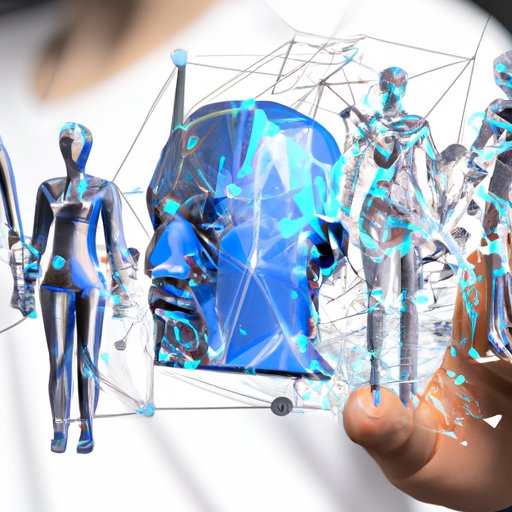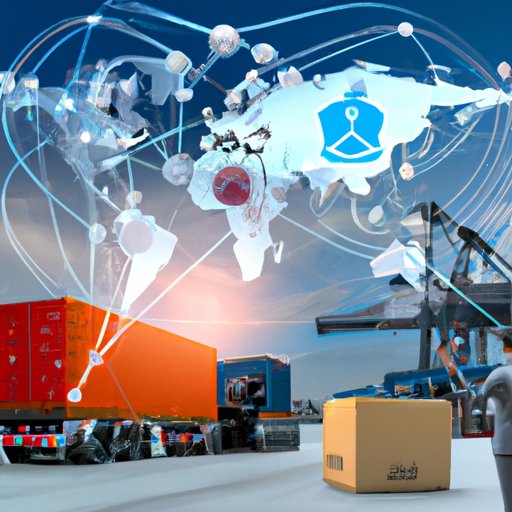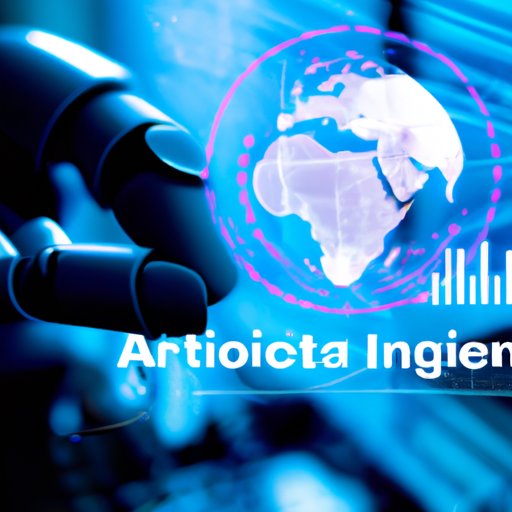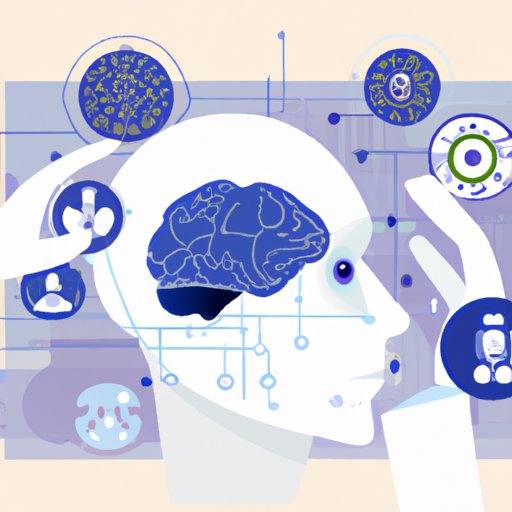Introduction
Artificial intelligence (AI) is the development of computer systems that can think and act like humans. It has been a rapidly growing field over the past few years, and its potential applications are vast. AI has the potential to revolutionize the way we do business and interact with one another. In this article, we will explore how AI could affect the economy in terms of job creation, productivity, investment, trade, and automation.

Exploring the Impact of AI on Job Creation
One of the most common concerns about the growth of AI is that it could lead to the displacement of human workers. This is due to the fact that AI is capable of performing certain tasks more quickly, accurately, and cost-effectively than humans. However, there is also the potential for AI to create new types of jobs that were not previously possible. For example, AI could be used to develop new products and services, create new markets, and provide new insights into customer behavior.
Examining the Potential of AI to Increase Productivity
One of the key ways in which AI could benefit businesses is by increasing productivity. AI algorithms can automate repetitive tasks, freeing up human workers to focus on more creative or strategic activities. Additionally, AI can help streamline processes by reducing errors and improving accuracy. This could result in cost savings for companies, as well as improved customer satisfaction.
Analyzing the Effects of AI on Business Investment
Investing in AI technology could have a number of potential benefits for businesses. For example, AI-driven automation could reduce labor costs, increase efficiency, and improve customer service. Additionally, investing in AI could give businesses a competitive edge in the market by allowing them to analyze data more quickly and make better decisions. However, there are also risks associated with investing in AI, such as the potential for job losses, privacy concerns, and the need for ongoing maintenance and updates.

Investigating How AI Could Change International Trade
AI could have a significant impact on international trade. AI algorithms could be used to speed up the process of negotiating and executing trade agreements. Additionally, AI could facilitate global supply chains by providing real-time insights into market conditions. However, there are also potential issues that could arise from the utilization of AI in trade, such as the risk of data breaches, the need for strong regulatory oversight, and the potential for AI to be manipulated to favor certain countries or companies.

Assessing the Impact of AI on Macroeconomic Growth
The potential impacts of AI on macroeconomic growth are difficult to predict. On the one hand, AI could lead to increased GDP growth by increasing productivity and creating new markets. On the other hand, AI could lead to reduced economic growth if it results in job losses or disrupts traditional industries. Additionally, AI could have an effect on inflation, unemployment, and other economic indicators. As such, careful monitoring of the effects of AI is necessary to ensure that it does not lead to unintended consequences.
Examining the Potential Benefits and Costs of AI-Driven Automation
AI-driven automation could bring a number of potential benefits, such as increased efficiency, cost savings, and improved customer service. However, there are also potential costs associated with automation, such as job losses, privacy concerns, and the need for ongoing maintenance and updates. Additionally, it is important to consider the ethical implications of using AI in decision-making processes, as it could lead to biased outcomes.
Conclusion
In conclusion, AI has the potential to significantly impact the economy in terms of job creation, productivity, investment, trade, and automation. While there are potential benefits associated with AI-driven automation, there are also potential risks that must be taken into consideration. It is therefore important to carefully monitor the effects of AI on the economy and to ensure that any potential negative consequences are addressed. Further research is needed to fully understand the implications of AI on the economy.
(Note: Is this article not meeting your expectations? Do you have knowledge or insights to share? Unlock new opportunities and expand your reach by joining our authors team. Click Registration to join us and share your expertise with our readers.)
